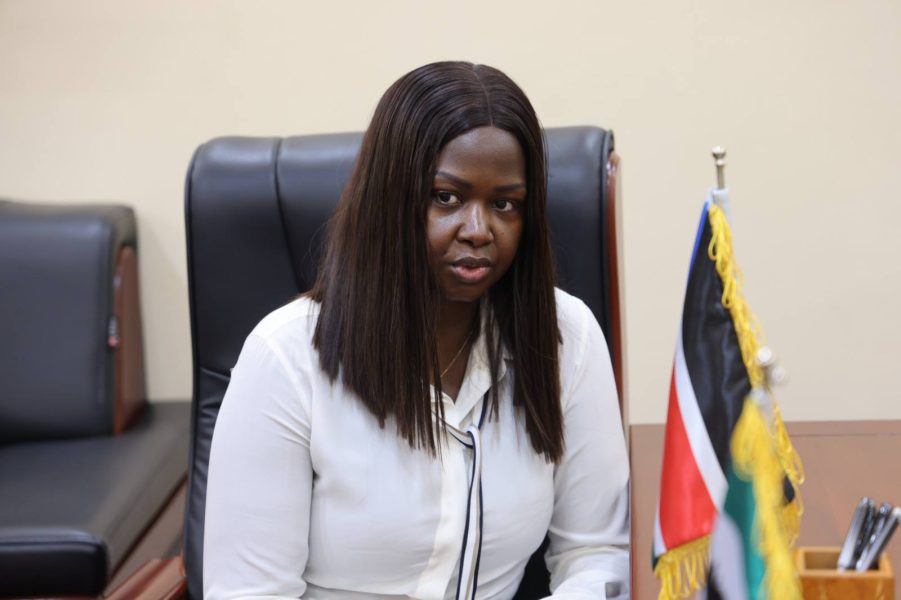
The newly appointed Senior Presidential Envoy on Special Programmes, Adut Salva Kiir, is charting a new path for peace, one rooted not in political deals, but in meeting the daily needs of ordinary citizens.
“True peace and reconciliation must start with well-structured, government-led initiatives that focus on delivering essential services to our people,” Adut said, outlining a vision that sees healthcare, education, agriculture, and security as the pillars of lasting stability.
For Adut, peace begins in the clinic, where mothers must reach life-saving care; in classrooms, where children must be equipped with the knowledge to build a future; and on farms, where families rely on the land for food and income.
Years of conflict have left these basic systems fractured, she notes, and restoring them is key to rebuilding trust between the government and its people.
Her healthcare agenda focuses on reaching remote areas with mobile clinics and community health workers, ensuring essential medicines and care are not just promises but realities.
In education, she stresses inclusivity, with schools offering opportunities for girls and marginalized communities long left behind.
Agriculture, she believes, is the backbone of both livelihoods and stability. By modernizing farming techniques and connecting farmers to markets, she sees communities less vulnerable to conflict over scarce resources.
Security, Adut emphasizes, is more than the absence of violence. It is about building institutions that protect citizens equitably, fostering community trust, and preventing small disputes from escalating into full-blown crises.
Central to her philosophy is the empowerment of youth and women, whom she identifies as drivers of development and catalysts for reconciliation.
“When young people and women are included, peace becomes sustainable,” she said.
Adut’s approach represents a shift from traditional peacebuilding, which often focuses on elite negotiations, toward a framework where the delivery of essential services forms the foundation of reconciliation.
For her, true peace is not only declared, it is experienced, every day, in the lives of South Sudanese people across the country.

